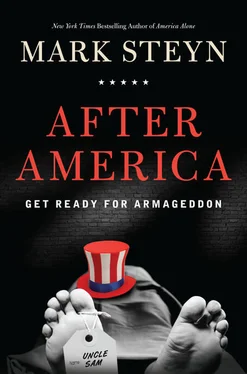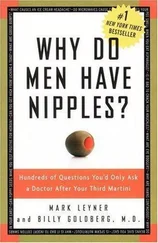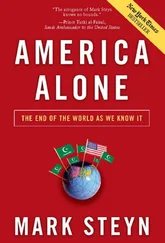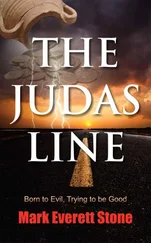Even inside? Gee, that’s big of you. “Those establishments have permits”?
In California, what doesn’t? Commissar Huff added that there are a range of permits of varying costs. No doubt a plain instant coffee permit would be relatively simple, but if you wished to offer a decaf caramel macchiato with complimentary biscotti additional licenses may be required.
“We’re certainly working with the health department,” said Mr. Collins. “We want to be in compliance with the law.”
Why?
When the law says that it’s illegal for a storekeeper to offer his customer a cup of coffee, you should be proud to be in non-compliance. Otherwise, what the hell did you guys bother holding a revolution for? Say what you like about George III, but he didn’t prosecute the Boston Tea Party for unlicensed handling of beverage ingredients in a public place.
This is the reality of small business in America today. You don’t make the rules, you don’t get to vote for people who make the rules. But you have to work harder, pay more taxes, buy more permits, fill in more paperwork, contribute to the growth of an ever less favorable business environment, and prostrate yourself before the Commissar of Community Services—all for the privilege of taking home less and less money.
The prohibition of non-state-licensed coffee is a small but palpable loss to civic life—a genuine community service, as opposed to those “Community Services” of which Elizabeth Huff is the state-designated “Manager.”
Randy Collins and the other taxpayers of Ventura County pay Commissar Huff’s salary. I would wager that, like most small business owners, the Collins family work hard. They take fewer vacations and receive fewer benefits than Commissar Huff. They will retire later and on a smaller pension. Yet they pay for her. Big Government requires enough of a doughnut to pay for the hole: you take as much dough as you can get away with and toss it into the big gaping nullity of microregulation. And it’s never enough. And eventually you wake up and find your state is all hole and no doughnut.

BULLS IN A CHINA SHOP
What do we have to show for the political class’ disruption of every field of endeavor? From education to energy, health care to homeowning, the Conformicrats bungled everything they touched. You can see the impact of the regulatory state in the structural transformation of the American economy. From 1947 to the start of the downturn in 2008, manufacturing declined from 25.6 percent of the economy to 11 percent, while finance, insurance, real estate, and “professional services” grew from 13.9 percent to 33.5 percent. 96Much of that last category is about the paperwork necessary to keep whatever it is you do in compliance with the Bureau of Compliance.
Of the remainder, the financial sector ballooned in support of the Age of Credit, and real estate was the one thing you could always rely on—“safe as houses,” right?
So how are those growth “industries” doing today? A headline from the New York Times :
Real Estate’s Gold Rush Seems Gone for Good 97
Which is a problem. For all the novelty junkies twittering about the Internet age and virtual reality, the principal asset of most Americans remains the most basic of all: the bricks and mortar of their rude dwelling. For all the analysts proclaiming society’s transition from manufacturing to the “knowledge economy,” for the majority of Americans the surest way of building wealth at the dawn of the twenty-first century involved neither knowing nor making anything: you bought a house, and, simply by doing nothing but eating, sleeping, and watching TV in it, your net worth increased.
Not anymore. Dean Baker, of the Center for Economic and Policy Research, calculates that it will take two decades to recoup the $6 trillion of housing wealth lost between 2005 and 2010. 98Which means that in real terms it might never be recouped. In the early Seventies, the United States had about 35 million homes with three or more bedrooms, and about 25 million two-parent families with children. By 2005, the number of two-parent households with children was exactly the same, but the number of three-or-more-bedroom homes had doubled to 72 million. As the Baby Boomers began to retire, America had perhaps as much as a 40 percent over-supply of family-sized houses. 99As Mr. Baker puts it, “People shouldn’t look at a home as a way to make money because it won’t.” 100
Oh. So what does that leave?
The “financial sector”? In the Atlantic Monthly , Simon Johnson pointed out that, from 1973 to 1985, it was responsible for about 16 percent of U.S. corporate profits. By the first decade of the twenty-first century, it was up to 41 percent. 101That’s higher than healthy, but the “financial sector” would never have got anywhere near that size if government didn’t annex so much of your wealth—through everything from income tax to small-business regulation—that it’s become increasingly difficult to improve your lot in life through effort—by working hard, making stuff, selling it. Instead, in order to fund a more comfortable retirement and much else, large numbers of people became “investors”—albeit not as the term was traditionally understood. Like homeowning, it was all very painless: you work for some company, and it puts some money on your behalf in some sort of account that somebody on the 12th floor pools together with all the others and gives to somebody else in New York to disperse among various parties hither and yon. You’ve no idea what you’re “investing” in, but it keeps going up, so why do you care?
That’s not like a nineteenth-century chappie saying he’s starting a rubber plantation in Malaya and, with the faster shipping routes out of Singapore, it may be worth your while owning 25 percent of it. Or a guy in 1929 barking “Buy this!” and “Sell that!” at his broker every morning. Instead, in both property prices and retirement plans, an exaggerated return on mediocre assets became accepted as a permanent feature of life.
It’s not, and it never can be. In Sebastian Faulks’ novel A Week in December , set during the great unraveling of 2008, the wife of a hedgefundy type muses:
The essential change seemed to her quite simple: bankers had detached their activities from the real world. Instead of being a “service” industry—helping companies who had a function in the life of their society—banking became a closed system.
Profit was no longer related to growth or increase, but became self-sustaining; and in this semivirtual world, the amount of money to be made by financiers also became unhitched from normal logic.
It’s one thing to have a financial sector that provides a means for wealth creators to access equity to advance economic growth. But, by the time you’re using the phrase “credit default swap” without giggling, by the time you’re trading not only in derivatives of derivatives but in derivatives of derivatives of derivatives (seriously), you’re several links unhitched from any tangible reality. Tom borrows money from Dick, who turns a nice profit by selling Dick’s debt to Harry, who covers himself against the risk of Dick’s failure to repay by insuring the debt with Nigel, who mentions it over lunch to Peregrine, who writes it up in his Moneywatch column as a sign that confidence is returning to the markets. Only when Peregrine brings it up with Ahmed, the affable imam who lives next door, does anybody rain on the parade. The Prophet Mohammed, among his many strictures, enjoins the believers to have no truck with the frenzied infidel trade in Xeroxed IOUs. Which may be why (in the financial sector’s in-house version of the demographic Islamization of Europe) the Age of Credit also saw sharia-compliant finance plant itself in the citadels of the West.
Читать дальше












